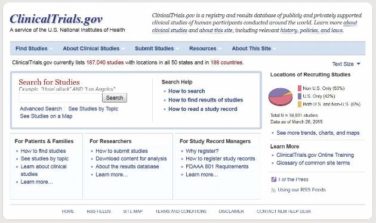AT ACR 2017
SAN DIEGO (FRONTLINE MEDICAL NEWS) – As quality measures are poised to become crucial to U.S. physician incomes in 2019, an analysis of a nationwide registry sample finds that rheumatologists overall have decent scores on several fronts. But they still need to boost their record on preventive measures that are not geared specifically to their specialty.
“Rheumatologists are performing well, so far, on aspects of care coordination, such as communication with the health care team post osteoporotic fracture and on several patient safety measures, such as avoiding high-risk drugs in the elderly,” said Jinoos Yazdany, MD , of the University of California, San Francisco. However, “in some preventive care measures, such as tobacco screening, there is room for improvement compared to benchmarks that the Centers for Medicare & Medicaid Services has set across providers.”
Dr. Yazdany presented findings from a sample of RISE, an electronic health record registry owned by the American College of Rheumatology and partly sponsored by Amgen, in a plenary session at the annual meeting of the ACR. Dr. Yazdany, chair of the ACR’s Committee on Registries and Health Information Technology Committee, also spoke about the registry in an interview.
The ACR created the registry “to help rheumatology harness the power of electronic health record data to advance our understanding of the natural history, treatment, and outcomes of rheumatic disease,” Dr. Yazdany said. “Another important goal was to harness the power of a national registry to measure and improve quality of care and outcomes. Practices can use RISE to see where they are performing well and where there is room for improvement.”
Since 2016, the registry has passively collected data on 2.5 million patients and 13.7 million encounters.
“The quality measures in RISE serve several purposes,” Dr. Yazdany said. “First, they fulfill reporting requirements to CMS through the Merit-Based Incentive Payment System [MIPS]. Second, the measures provide information to practices that can be used to track quality improvement and population health management. Finally, the measures create unprecedented opportunities to learn from practices that are excelling and to adapt successful work flows to improve care for our patients.”
These measures matter. In 2019, payments for many physicians under Medicare Part B will be adjusted based on their performance in these areas in previous years. Most rheumatologists will take part, Dr. Yazdany said.
“Rather than focusing on a single measure, the key number in 2017 for the MIPS program is 70 points across the three domains of Quality, Advancing Care Information, and Improvement Activities,” she said. “Above that threshold, rheumatologists will qualify for an ‘exceptional performance bonus.’ That means they will get a minimum of an additional 0.5% on their Medicare billing.”
She added that “there is no reason that most rheumatologists should not cross the 70-point threshold. Proactively monitoring their progress in RISE will help them succeed.”
The ACR session focused on a registry sample of 225 practices and 750 rheumatologists. The analysis measured their performance from January to September 2017 in the Quality, Advancing Care Information, and Improvement Activities areas.
In terms of meeting benchmarks, the rheumatologists in the sample performed especially well in several areas.
On the drug safety front, across elderly patients, an average of just 3.6% were prescribed one or more high-risk medications, and 0.2% were prescribed two or more.
On rheumatoid arthritis measures, 52% of patients had documentation of tuberculosis screening before biologics, and 46.3% underwent functional status assessments. And in the care coordination and documentation measure, 92.9% documented current medications in the EHR.
Rheumatologists lagged in terms of preventive care, compared with other physicians nationally: The average performance across patients was 77.2% for tobacco screening and counseling, 42.7% for body mass index screening and counseling, and 60.2% for blood pressure management.
Why are these preventive care measures being tracked in rheumatology instead of more rheumatology-specific measures? “CMS requires that physicians submit an outcome measure. Unfortunately, we don’t have validated outcome measures in rheumatology, so we had to adopt outcome measures like controlling blood pressure,” Dr. Yazdany said. “Also, many preventive care measures are designated ‘high priority,’ which enables physicians to get bonus points. We wanted rheumatologists to have access to these extra points and therefore included these measures in RISE.”
The ACR is working on developing outcome measures, she said, “and hopefully we’ll have outcomes to put in the registry in coming years.”
What are the chances that rheumatologists will do well? “Our analyses show that most rheumatologists participating in RISE are well positioned to succeed. If they complete their improvement activities (15% of MIPS), and advancing care information (25% of MIPS) modules, that gets them to 40 points. That means they only need 30 additional points in the quality domain to get to the exceptional performance threshold and qualify for a bonus,” she said. “All 15 of the rheumatologists who have completed all three MIPS categories have reached 70 points, and we anticipate that many others will by the end of the year.”
Even just participating in RISE will boost points, she said. “It is clear that CMS is encouraging the large-scale development of quality improvement registries like RISE.”
In the big picture, she said, “the key point is that rheumatologists should be proactive. They need to understand their performance on measures, pick areas to focus on, including areas where they can easily improve their scores.”
Dr. Yazdany reported no relevant disclosures. The study was funded by ACR.




